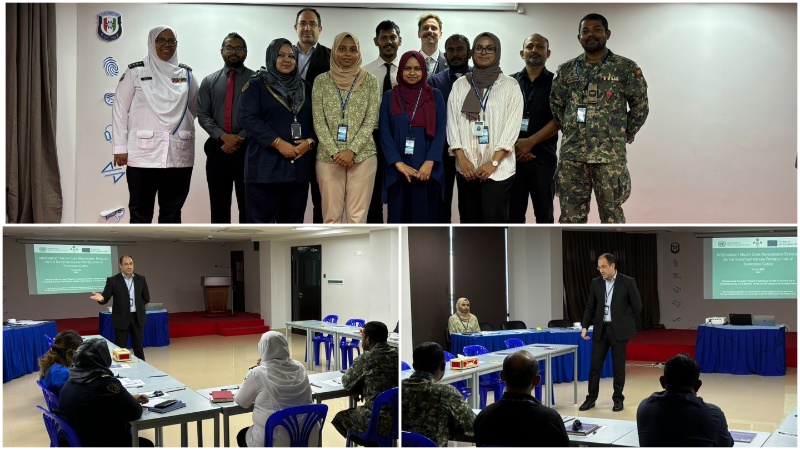Maldives: UNODC strengthens cooperation among key agencies in investigating and prosecuting terrorism

Male, Maldives/12 June 2024: Officials from criminal justice entities participated in a hands-on inter-agency case management exercise on the investigation and prosecution of terrorism cases, featuring a UNODC-designed simulated terrorist incident. The activity was delivered as part of the project “Support to addressing the risk of terrorism and to increasing security in the Maldives” carried out with funding by the European Union.
The National Counter Terrorism Centre emphasized the role of such collaboration and coordination in countering terrorism-related cases.
The exercise engaged participants to work in groups and identify the steps national agencies would take in responding to a fictitious terrorist attack on Malé and the entities, both national and international, with which coordination would be required in this regard.
Discussions facilitated the identification of the strengths and gaps in existing cooperation mechanisms, helping participants assess individual awareness of these procedures as well as their overall functionality. Participants also identified potential corrective measures and prioritized follow-up actions to enhance national inter-agency cooperation.
The exercise marks yet another important step in the ongoing efforts of Maldives to combat terrorism and violent extremism.
By providing a platform for practical, scenario-based learning, UNODC and national stakeholders underscored the shared goal of bolstering the security framework of the country, with active engagement and insightful contributions from participants.
The exercise demonstrated the commitment of Maldives in tackling terrorism, and exemplified the effectiveness of national and international partnerships in addressing global security challenges.
The activity contributed to SDG 5, SDG 16 and SDG 17: https://sdg-tracker.org/

This article was produced with the financial assistance of the European Union. The views expressed herein can in no way be taken to reflect the official opinion of the European Union.